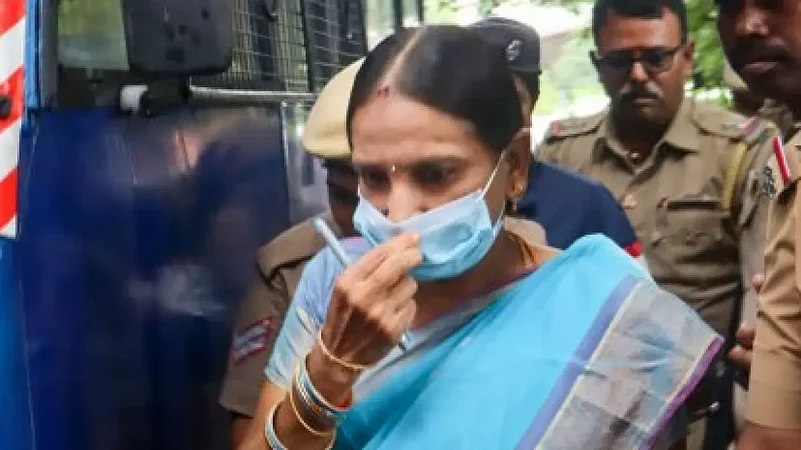After her release from prison on Saturday following the Supreme Court order, Nalini Sriharan, one of the six convicts in former Prime Minister Rajiv Gandhi's assassination case, told NDTV in an interview that she felt extremely sorry for the families of those who died in the blast.?
'We Are Sorry, Hope They Come Out Of The Tragedy Once For All': Rajiv Gandhi Assassination Convict Nalini Sriharan's Message To The Gandhi Family
When asked if she would meet the Gandhi family, Nalini said 'I don't think they will meet me. I think the time has passed for them to see me.'

"I am very sorry for them. We have spent so many years thinking about it, and we are sorry. They have lost their dear ones. I hope they will come out of that tragedy once for all, any time,” Nalini said.?
She added that she now hopes to settle in the United Kingdom with her daughter and her husband.?
Further, when asked if she would meet the Gandhi family, Nalini replied “I don't think they will meet me. I think the time has passed for them to see me."
Convicts’ release
Nalini Sriharan, her husband V Sriharan alias Murugan, Santhan, Robert Payas, and Jayakumar were on Saturday released from Tamil Nadu prisons. The sixth convict named AG Perarivalan was released in May.?
The Supreme Court on Friday ordered the release of five convicts serving life term for about three decades in the Rajiv Gandhi assassination case, noting that its earlier order releasing another convict Perarivalan was equally applicable to them. The court added that its decision was also based on the prisoners’ ‘good behavior.’
Mixed reactions
Their release evoked a sharp criticism from the Congress party, alleging that the Modi government's "reprehensible silence" on the matter was a “compromise with the terrorist act."
Congress general secretary in-charge organisation K C Venugopal said there shouldn't be any sympathy towards terrorists. And those who applaud the release of these terrorists are, indeed, indirectly emboldening them, he added.
The decision has, however, been celebrated by many in Tamil Nadu, including the ruling DMK, a strong Congress ally. Many in the state viewed the convicts’ prolonged incarceration as an emotive issue given that they believe that the seven locals involved in the assassination were part of the plot without knowing its true extent.?
Rajiv Gandhi assassination case
Former Prime Minister Rajiv Gandhi was assassinated on May 21, 1991, by the Sri Lanka-based terrorist group Liberation Tigers of Tamil Eelam (LTTE) during an election rally. He was the second Indian prime minister to be assassinated after his mother Indira Gandhi, who was killed by her bodyguards.?
It is said that the LTTE was angered by Rajiv’s decision to deploy the Indian peacekeeping forces in Sri Lanka in 1988 at the height of the civil war. The Indian military was first dispatched with the objective of aiding Lankan authorities, but the mission changed with time, evolving first into counter-insurgency and eventually into a war in the jungles with LTTE, according to the think tank Gateway House.
The IPKF's mission ended in 1990 but that did not placate LTTE. The idea of Rajiv's return to power was so unacceptable to LTTE that it decided to kill him.
In 1998, a Terrorist and Disruptive Activities (Prevention) Act court in Chennai sentenced Nalini and other convicts to death.?
But in 2014, the Supreme Court commuted the death sentences to life imprisonment, following former Congress chief Sonia Gandhi’s appeal.
- Previous Story
 Marital Rape 'A Social Issue Not Legal', Centre Files Affidavit With SC Against Criminalisation
Marital Rape 'A Social Issue Not Legal', Centre Files Affidavit With SC Against Criminalisation - Next Story
























